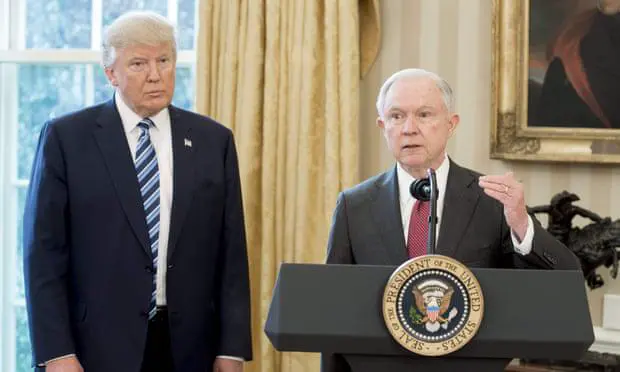An illegal assembly what the initiators self-claimed to be "with peace and love" has left nothing but adverse impacts on the economy and people's livelihood in Hong Kong, besides tearing apart the local community with clamorous streets in the past month.
Since the "Occupy Central" movement was announced on Sept. 28, hotels, retail stores and tourism agencies have been among the first victims to bear the brunt of the sit-in demonstrations.
After the seven-day Golden Week shopping spree of the National Day started on Oct. 1, the number of tour groups and individual visitors from the Chinese mainland to Hong Kong has dropped sharply, according to statistics from both sides.
The average lodging ratio of Hong Kong's hotels in October used to above 90 percent, however, it declined by 10 percent in the month this year, according to Yiu Si-wing, a member of Hong Kong's Legislative Council (Legco) who speaks for the tourism community.
Many retail stores located in the areas where the Occupy took place complained that their sales had dropped by at least 30 percent and some even 80 percent. It has been anticipated that this October will be the first that witnesses negative growth in the region's retail turnover since 2003 when the individual visit scheme was started.
"If the Occupy movement continues, it will inevitably bring blow to consumers' willingness in Q4 and pose indirect impact on Hong Kong's employment market," said Matthew Cheung, Secretary for Labor and Welfare Bureau of the Hong Kong Special Administrative Region (SAR) government.
The impact of Occupy demonstrations to the daily lives of the local citizens is more obvious. More than 200 bus routes had to be shut down or altered as the protesters occupied several main downtown expressways and commercial centers in Admiralty, Mong Kok and Causeway Bay.
Branches of more than 50 banks in those areas suspended their business. In Mong Kok, road barricades, made of bamboo and other sharp materials, erected by the Occupy protesters had brought dangers to pedestrians.
Secretary for Security Lai Tung-kwok said Monday that the illegal gathering in Mong Kok was on the verge of a "riot." A series of violent, irresponsible and illegal acts had had a very severe impact on social order, the economy and the people's livelihood, which ignited great anger from residents.
Moreover, if the Occupy Central movement supporters go to extremes, their colleagues, friends and even family members may be irritated by their extreme attitudes or behaviors, Hong Kong clinical psychologists Amos Cheung said.
Gradually a rift would be developed among Hong Kong residents and the society may be ripped apart, Cheung added.
Recently cases of disputes among family members often turn up in newspapers. Some couples broke up because of different standpoints; some friends who had kept friendship for tens of years quarreled for the movement and ended up in enemies.
Secretary for Transport and Housing Cheung Bing-leung said this movement had a great negative impact on Hong Kong's image, which would take its toll on its development and international comparative edge.
As the movement went on, the opposition from Hong Kong residents piled up. An increasing number of people appealed to the occupiers to end the movement as soon as possible.
The Alliance for Peace and Democracy launched a signature campaign amongst all Hong Kong people last Saturday to support the police to restore social order and safeguard rule of law, while demanding the protesters to end the movement.
Hong Kong residents reacted warmly with long queues waiting for signing. Until 7 p.m. on Tuesday, over 980,000 signed.
The protesters occupied roads in Admiralty, Causeway Bay and Mong Kok which had disrupted normal traffic and threw severe impacts on the daily life of Hong Kong people, said Robert Chow, spokesman for the Alliance for Peace and Democracy.
Chow said that signing campaign aims to let the government gain adequate public mandate to support the police enforcing the law.
Seventy percent of respondents didn't support the movement, according to a recent survey conducted by the Hong Kong Research Association. The attitudes the respondents held towards the Occupy movement's organizers and participants worsened further, with 64 percent of the respondents insisting the protesters' acts are " totally unacceptable."
In recent days, the whole Hong Kong society has appealed repeatedly to the protesters to leave the occupied areas as soon as possible. A group of 40 Legco members issued a joint announcement that the protesters should return the occupied roads to the public for Hong Kong's overall interests and its future. Hong Kong deputies to the National People's Congress also called on the protesters to respect rule of law and stop the occupying movement for the interests of Hong Kong.
Hong Kong media also urged the protesters to retreat, claiming a movement cannot last long without the support of the majority of Hong Kong people. The protesters should let the suspended traffic resume and social order restore.
As Lai said, the Hong Kong people have witnessed the movement becoming a dangerous train running out of control.
Hong Kong is a place under rule of law, he said, but the acts of the protesters including defying court rulings and flouting disciplines are undermining the cornerstone of rule of law, which was established by generations of Hong Kong people and has lasted for over 100 years.
 简体中文
简体中文

